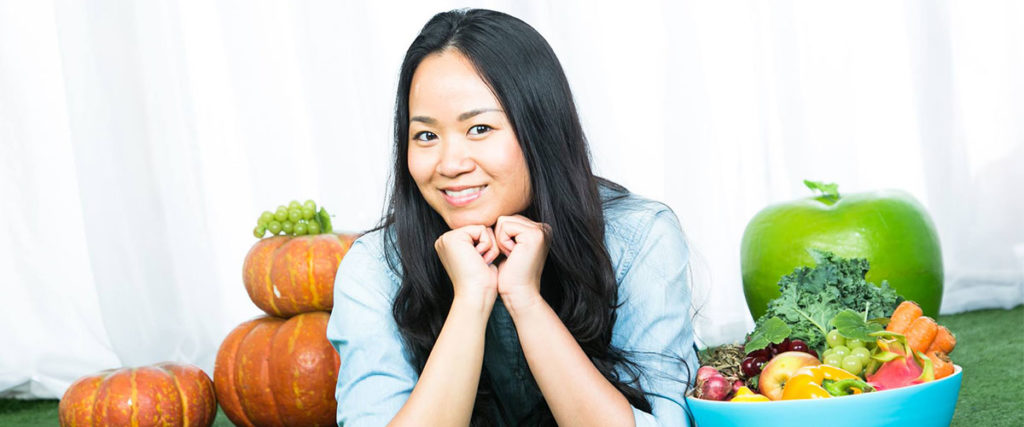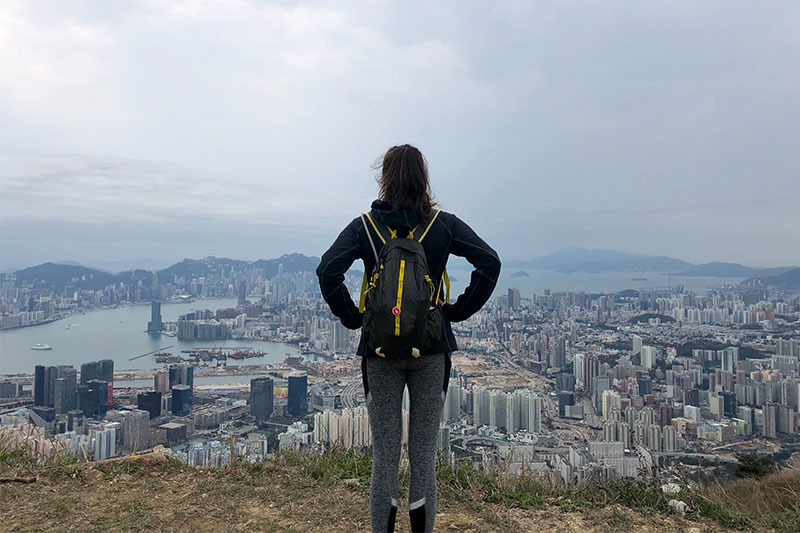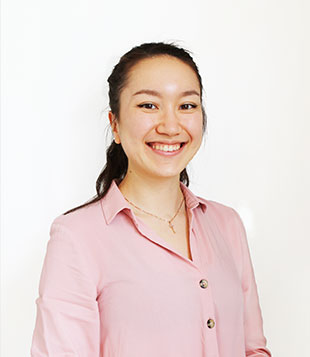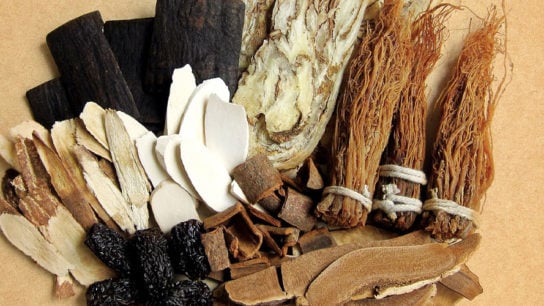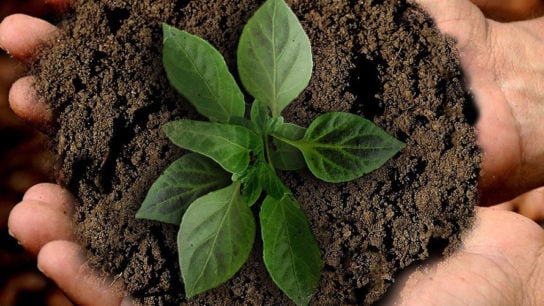Having beat Stage 4 cancer twice, Denise Tam is a certified nutritionist and champions an ‘unconventional’ approach to medical care that focuses on holistic health, not disease.
What was supposed to be a routine checkup one afternoon quickly turned sour when Denise Tam, a young journalist based in Hong Kong, received a call to come back to the clinic immediately. Suspecting thyroid issues given her family’s history with the disease, the bleak prognosis her doctor painted instead was infinitely worse than anything she could have imagined.
In 2009, Denise Tam, aged just 26, was diagnosed with advanced Stage 4 Follicular Lymphoma – a cancer that targets white blood cells called lymphocytes. After recovering, she relapsed in 2012. Her life-changing battle catapulted her into the world of nutrition and holistic health, where she explored ways of healing the mind, body and spirit as a whole, rather than separately as per conventional approaches. We caught up with Denise, now a Certified Holistic Nutritionist, speaker, and health store co-founder, and discussed the importance of listening to your body, navigating your own and others’ traumas with compassion, and her holistic health tips for COVID-19.
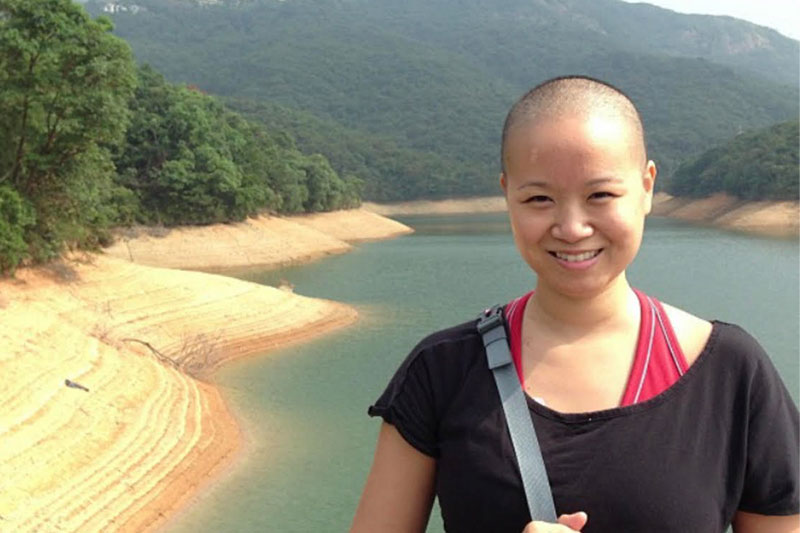
How did the first cancer diagnosis in 2009 impact your career, relationships and mentality? Did you ever feel alone in your journey?
Completely. There are lots of great Cancer Care groups and Cancer Connect groups out there, but I think with trauma in general, while it’s helpful to have people who have gone through something similar, it’s still just something similar, so the experience was quite lonely. One of the biggest challenges was also making decisions – and quickly too – because nobody can make those difficult, life-altering decisions for you. Even though I did have my family around me, a strong network of doctors, and an amazing community, I was the one who had to internalise all this information at the end of the day and figure out, ‘Is this really how I want to spend my time?’ So, at 26, I was forced to step out of the boat and own every single decision I made.
Having to take ownership in order to survive brought me to a place of understanding. Instead of relying on doctors or my parents for information, I started listening to what my body was telling me, and acquiring knowledge on how different foods or drugs affected it. And this became empowering. It catapulted me into the world of nutrition and gave me confidence stepping into whatever treatment, diet or lifestyle I chose. So now, when I speak to clients or customers, I always emphasise the knowledge and understanding part first. If they’re going to start any kind of programme or protocol, they themselves need to understand why they’re doing it because understanding will help them stick by it with confidence.
You might also like Female Fitness Warrior Talks Strength, Resilience & Career After Battling Cancer
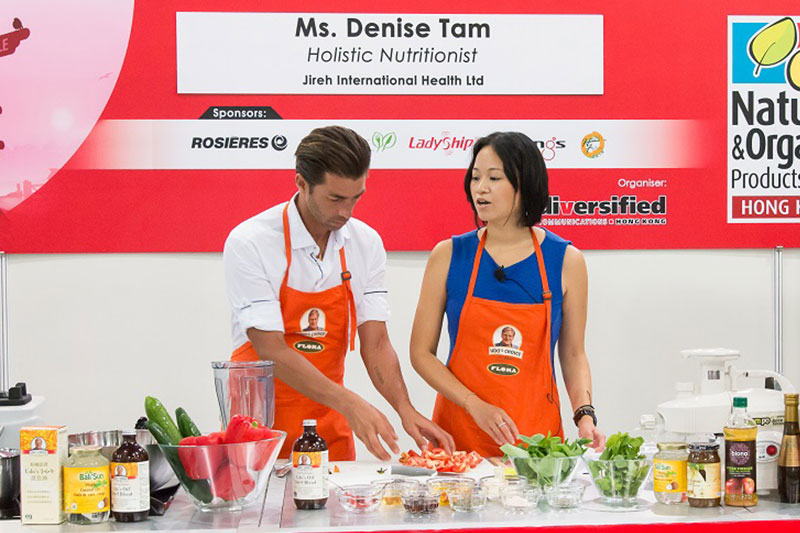
What were some of the changes you introduced to your life as a result?
As we all do when faced with something scary, we turn to the Internet and google the most ridiculous things. And that’s precisely what I did because I couldn’t understand how one could just wake up with Stage 4 cancer. Through doing this, I realised that cancer actually develops over time which meant that my lifestyle prior to the diagnosis set it up. I set up the environment for that cancer to grow, so it was a case of looking back and asking, ‘Okay, what were all the things I did that contributed to this and how can I change it?’ Even just looking at my diet. It’s not that I was eating McDonald’s every day – I loved my salads, I loved my vegetables, but I was having processed food and wasn’t as careful with where I chose to eat out in terms of the oils they were using or where my meat came from. So, source became a really big determining factor for me when it came to choosing my foods. Our food system, especially our livestock, is saturated with hormones, antibiotics, and pesticides. Animals are being fed corn and grains which isn’t their natural feed and can cause inflammation. Imagine what that does to our bodies when we eat them? One of the first things I did was go completely vegan because it was just easier for me to cut all that out and focus on fresh, organically grown fruits and vegetables. So that’s the biggest change I made: focusing on food – and to this day, I still believe food is our foundation.
2009 was also the same year my mum and I opened our first health food shop, Food for Life. This came from the need to access high-quality health products for my own healing, including supplements, herbals, things like that. It was also an opportunity to have more face-to-face relationships with customers, and share what we’d been learning over the course of this journey.
So fast forward to 3 years later: you’re diagnosed with cancer a second time after recovering. Was it more difficult this time or did you feel you already had coping systems in place?
So the first time round, I was supporting my body with nutrition and still had lots of energy. I remember going out to celebrate a friend’s birthday after my first round of chemotherapy. But the second time was especially difficult because it was more emotional – I thought I’d beaten it, I thought that my life could go back to ‘normal’. The second time was also much more severe than the first…I didn’t understand why I relapsed when I’d been following a really healthy diet. So I went back to the drawing board and started learning about how our emotions and physical bodies were directly connected. I’d done a physical detox the first time, but I hadn’t done a mental detox. So I sought counselling and began working through not only the trauma of my cancer diagnoses, but earlier events like leaving Canada and a 5-year relationship to move to a completely new place, and how that affected me in ways I didn’t even realise. I think in Asia, being busy and stressed is such a glorified thing, so it was really important for me to pause and ask myself, ‘What emotions am I still carrying in my body and how can I address those?’
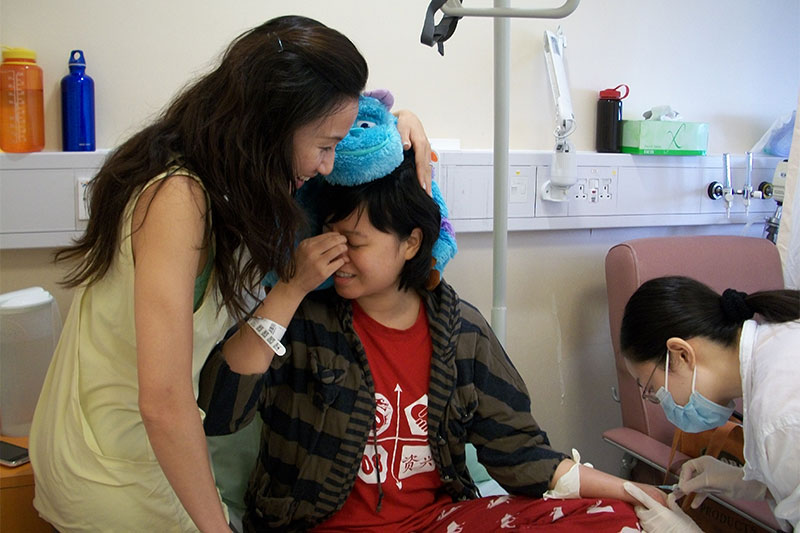
You’ve spoken a lot about the importance of managing negative emotions, especially fear. What’s the difference between ‘managing fear’ and attempting to get rid of it entirely?
One of my biggest pet peeves going through cancer was when people would come up to me and say, “you’re a warrior,” “you’re a fighter,” “you’ve got this.” In my mind, I believed them but it was like, ‘okay, now what?’ I still need to fight this. What really helped me was when I started blogging, practising daily prayer, and writing all my thoughts into a journal. I let myself cry. I had a few trusted friends who I could easily pick up the phone and vent to about how life sucked or just not say anything and they wouldn’t feel uncomfortable. I think it’s so important to have a safe space where you can feel crappy for a moment and not have to step into that ‘persona’ people expect of you. There’s no shame in being afraid or disappointed or angry. With the writing, you have to use words to name an emotion, to process it, and then release it. And that enabled me to manage my emotions better, instead of letting them control me.
In your blog post ‘My Hope for Cancer’, you write about hoping we ‘don’t become desensitised to cancer’. Could you elaborate on that?
Like any tragedy, the more mankind is exposed to it, the less we react to it. Take school shootings, for example, or even the protests in our city. After a while, the initial response is dulled and we become desensitised to the traumatic impact it can have on our fellow human beings. We lose empathy and compassion. We lose that essential connection to humanity by seeing it as an event, an incident, or a piece of news to be consumed. So how can we stay compassionate? With more and more people affected by cancer, either personally or within their close circles, the empathy may not dissipate as quickly as other traumas, but I believe it would first require our emotionally repressed Chinese culture to embrace the onslaught of emotions that come with cancer. Shame, fear, anxiety, depression, loneliness, guilt – they all need to be validated. It’s okay to celebrate victories and it’s okay to acknowledge losses.
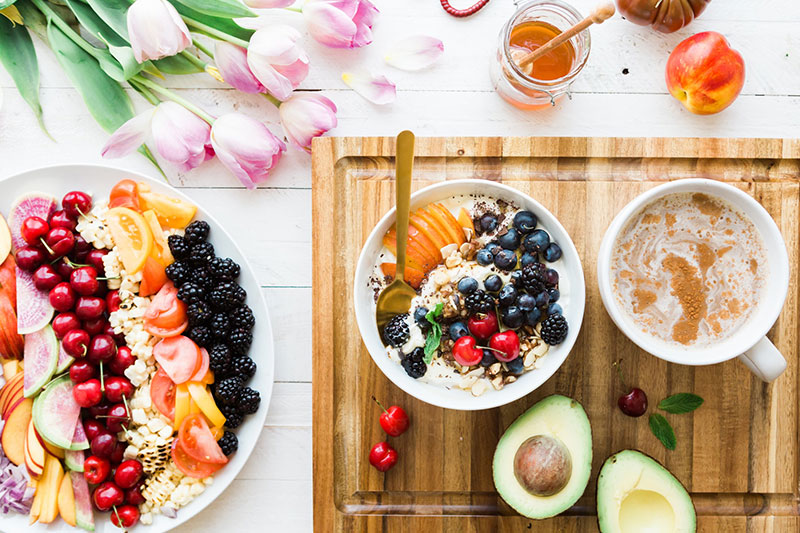
How much do you identify with the label ‘cancer survivor’?
I actually don’t like to be labelled ‘cancer survivor’ because it’s so much more than just surviving. It’s being victorious. Yes, I kicked cancer in the butt but I’m also a woman who, through cancer, has learned to be both soft and strong; a passionate advocate for life and educator of holistic living, a believer of possibilities and hopefully, a kinder, more loving and giving person in general.
Can you tell me more about your hashtag #1010lifeabundant, and what ‘living abundantly’ means to you?
I’m Christian, so reading the scriptures was a great comfort to me, as well as a source of wisdom. The hashtag #1010lifeabundant comes from John 10:10 – ‘I have come that they might have life, and that they might have it more abundantly’ – and it’s a philosophy I try to live by and share with others. You’re not meant to have chronic headaches at 3pm every day, your back isn’t meant to be painful. We’re not meant for a life of compromise and mediocrity, but one of fullness. For me, it’s not just about being cancer-free or void of disease. It’s about being able to live stronger and more optimally in all areas.
What does ‘holistic health’ mean, and how does it differ from traditional approaches?
Like I said before, I’ll always be thankful for conventional medicine, and to my oncologist and doctors who gave me time; time to learn how my body works and how to heal it. If my first diagnosis was about the food aspect, my second diagnosis was all about the connection between my body, mind and spirit – and I believe that’s what holistic health means. There are some people who only focus on mindfulness or prayer but ignore the physical body, and some who go to the gym 5 times a week but don’t tend to the thoughts in their head. Holistic health is about looking at our body, mind, and spirit as a whole, and as a balancing act: if one is off-balance, the others will also be off-balance. It’s not just treating the symptom but looking at the various interconnected elements that caused it.
Western medicine has a very narrow view of treatment. It’s categorised into different body parts: you go to an ophthalmologist for your eye, a dermatologist for your skin, a gastroenterologist for digestive issues, a cardiologist for your heart – but shouldn’t they be working together to heal the whole person? I understand specialisation, but the problem is when the specialist only looks at one organ and ignores the rest. This is the biggest issue with western medicine. That, and the fact that they don’t give enough credit to food and nutrition. Doctors are barely trained in nutrition, which translates to a lack of clinical studies on food and dietary supplements.
Any holistic health tips for safeguarding your physical and mental wellbeing during COVID-19?
I’ve actually written a blog post on this, but I strongly believe in the power of the 4 C’s during this time: Cooking, Community, Condition, and Consistency. Preparing your own food will always trump dining out any Michelin-starred restaurant because it’s a whole process. You’re putting your time and energy into planning the meal, handpicking the ingredients, washing and chopping them up, and serving it on a plate, so that when it’s time to tuck in, you’re all the more grateful. There’s actually evidence to suggest that if you take the time to make that gut-brain connection and be grateful before each meal, it creates digestive enzymes that prepare your body to receive nutrients. So I encourage everyone to use this opportunity to try out recipes and experiment in the kitchen.
Staying in touch with your community is also really important. Even with social distancing in full force, it’s good to stay connected with loved ones via video calls, and to check-in on people like the elderly.
Thirdly, consistency is key to maintaining optimal health and wellbeing. Now that people are largely working from home, everyone’s schedules are off. We’re snacking, sleeping, and waking at odd hours which isn’t doing any favours for our digestive and immune systems. There’s this deep sleep period between 10pm and 2am where our bodies are doing the most restorative healing work, so if you’re binge-watching Netflix all night, that really messes with your circadian rhythm and sense of clarity.
Looking back, would you have done anything differently?
I try not to have regrets, only lessons I can learn from. Unfortunately, I can be quite hard-headed, but I wouldn’t have those valuable lessons today if I’d done things any differently.
You can follow Denise Tam and glean helpful wellness tips by subscribing to her YouTube channel, Food for Life TV, and personal blog at www.1010-lifeabundant.com. Keep your eyes peeled, also, for an exciting book launch this summer. ‘Saved by Nutrition’ is an anthology of nutrition success stories in which Denise is a contributing author.
Related Articles
The Female MMA Fighter Who Risked It All To Go Professional
Female Tech Founder Builds Thailand’s First Mental Health App, Reaches 63,000 People
One Man’s Journey: Changing How We Talk About Men’s Mental Health
